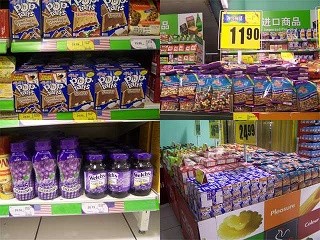China is set to further reinforce its regulation on imported foods, following a series of food safety scandals, as improvements to the revised Food Safety Law were made, according to the country's food quality watchdog.
Lin Wei, director of the Imported Food Safety Bureau of the General Administration of Quality Supervision, Inspection and Quarantine, made the announcement during the opening ceremony of the 2015 National Food Safety Awareness Week on June 15, Monday.
"The administration will further improve safety regulation of imported food by setting up risk management and assessment systems and improving a whole-process surveillance mechanism," he said.
The director said that improvements to the revised Food Safety Law of China were added, but he did not give further details.
The China Food and Drug Administration (CFDA) survey in March revealed that nearly 75 percent of respondents have no confidence in the safety of domestic food.
The biggest food safety crises occurred last year when Shanghai Husi Food, owned by the Chinese arm of U.S. food giant OSI Group, was found supplying expired meat to fast-food outlets that included McDonald's and Yum Brands in many parts of the country.
"The food supply chain is becoming more globalized, so we face common, more complicated challenges to ensure food safety," Sun Baoguo, academician of the Chinese Academy of Engineering and president of Beijing Technology and Business University, remarked.
"China definitely needs to further improve its food safety, but the concern and risk also touches on imported food items," Sun said.
Sun further urged food safety authorities to strengthen the regulation of imported food and continue with long-term efforts to ensure the safety of domestic food.
Lin said that currently it is the General Administration of Quality Supervision, Inspection and Quarantine which conducts quality inspections of imported food. He said that the administration has screened out 927 shipments of substandard or problem imported food items, worth $12.7 million in the first five months of the year.
The shipments came from 79 countries and regions, and included baked goods, dairy products, candy, drinks, liquors and dried nuts.
Lin said that the use of food additive and microorganism contamination are the causes of major problems, and contaminated food is always returned or destroyed.
Previously, the CFDA announced plans to deploy food and drug inspectors to the United States, but the plan did not push through due to staff shortages.
Similarly, the U.S. Food and Drug Administration, also unveiled plans to expand its office in China last year to be able conduct more inspections of food exports to the U.S.



























